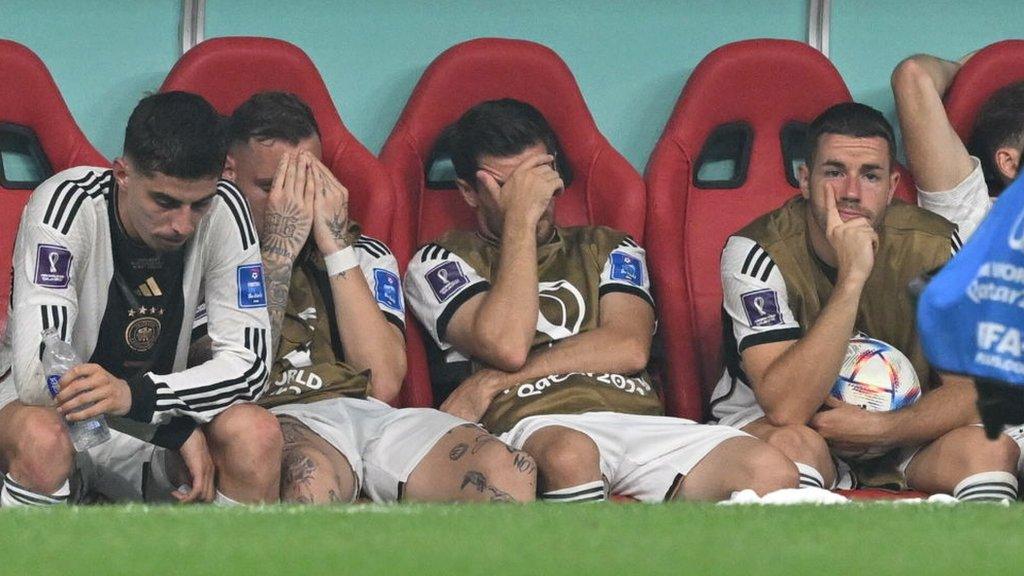2022 World Cup: Asian teams an emerging force against football giants
- Published
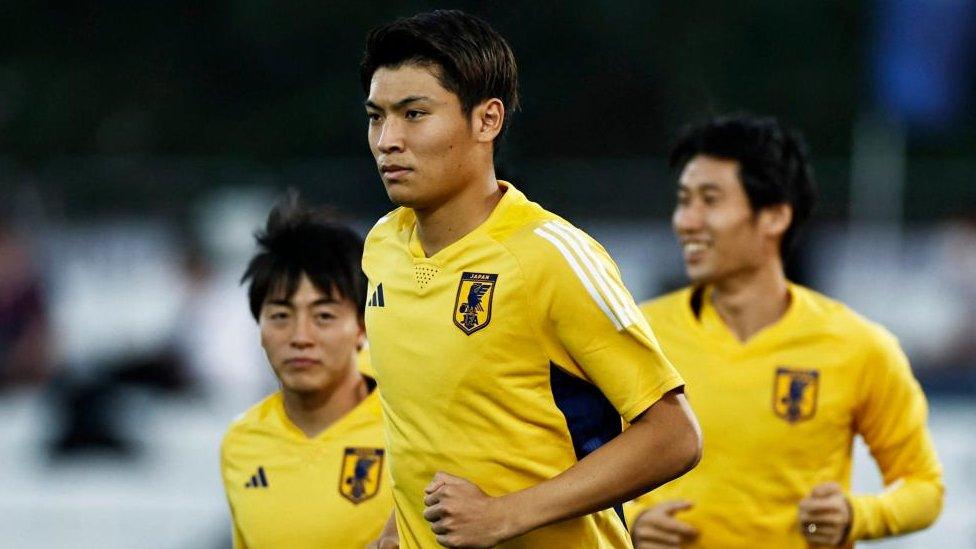
At the Al Sadd Club grounds in Doha, we get a few minutes to watch the Japanese national team train.
They've been an astounding presence in this World Cup.
They made it to the last 16 after topping their group, beating the 2010 winners Spain and four-time world champions Germany, who failed to reach the knockout stage.
But the Samurai Blue are taking nothing for granted as they prepare to face Croatia, the 2018 World Cup runners up.
"It's another wall they have to break," Japanese sports journalist Kumi Kinohara told me.
"We'll have to keep our fingers crossed. But I want to see them play in their own style," she added.
The Asia Pacific teams have been fearless on the pitch and have given their fans a lot to cheer for. Their performances so far have left some of the football powerhouses like Germany, Spain and Portugal in shock.
I also met Yim Minhuk and Kim Tonghwan. They've both travelled from Seoul to support South Korea.
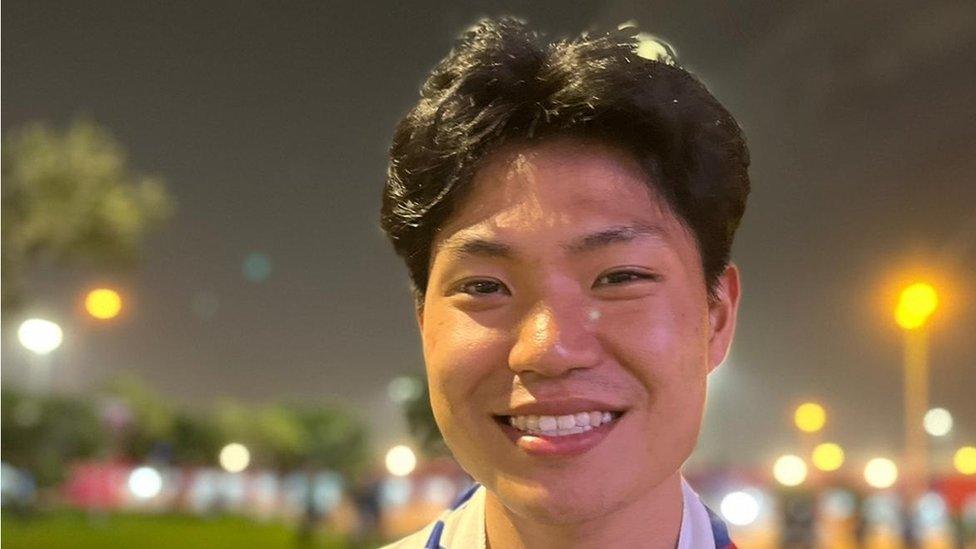
Kim Tonghwan: "We didn't give up"
They recalled the dramatic moment their team beat Portugal 2-1 and Uruguay fell short, exiting the World Cup.
"We won! We didn't give up. Where was Ronaldo?" Kim said.
"I'm very glad to see Asia competing with European and [South American teams] and I'm sure one day we will win the trophy," Yim said. "Remember my words."
This has been a World Cup of high emotion and high drama.
The Asia Pacific teams have delivered some of the most extraordinary moments so far.
"It's the underdog mentality. They're really fighting for it," Australian David Buttigieg told me, his face painted in his teams colours when he came to cheer them on as they faced, and lost to, Argentina last week.
"You see teams like Japan pressing so hard and taking time away from opponents [on the pitch]," he added.
"That's what the World Cup is all about, it's bringing teams that wouldn't [normally] be on to big stage to the big stage," Mr Buttigieg said.
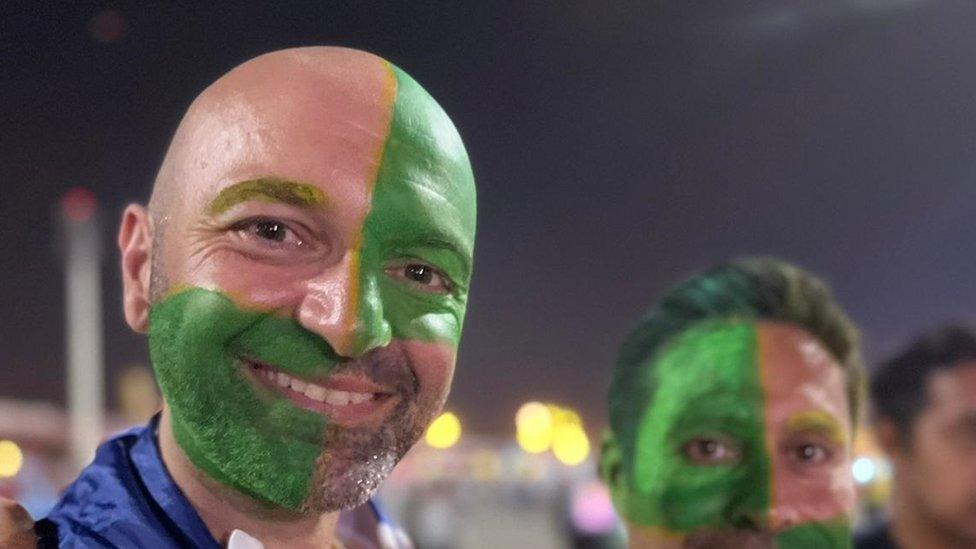
Australian David Buttigieg cheered on his team as they lost 2-1 to Argentina
The performances of these sides may have taken their opponents by surprise but Japanese sports journalist Kumi Kinohara said their success was not by chance.
Ms Kinohara said this was the result of experience and the confidence the teams have gained - especially after winning against some of football's titans. More crucially, this is also about exposure to top-quality football.
Many Asian players are now competing in European leagues. For example, Japan's Takuma Asano plays for the Bundesliga club VfL Bochum.
South Korea's Son Heung-min has cemented his position in the English Premier League as one of Tottenham Hotspur's forwards.
"One of the reasons they're doing so well is the background of the players," Ms Kinohara said.
"They now have experience with European clubs. They are learning a lot. Not only techniques and tactics but the mental side as well.
"That has [contributed] to the change in their game. And it's put everything together when it comes to the national teams," she said.
Last week, Melbourne's Federation Square erupted in celebration - flares turned the night sky red, with Australian fans in raptures as their side beat Denmark to secure a place in the knockout stages.
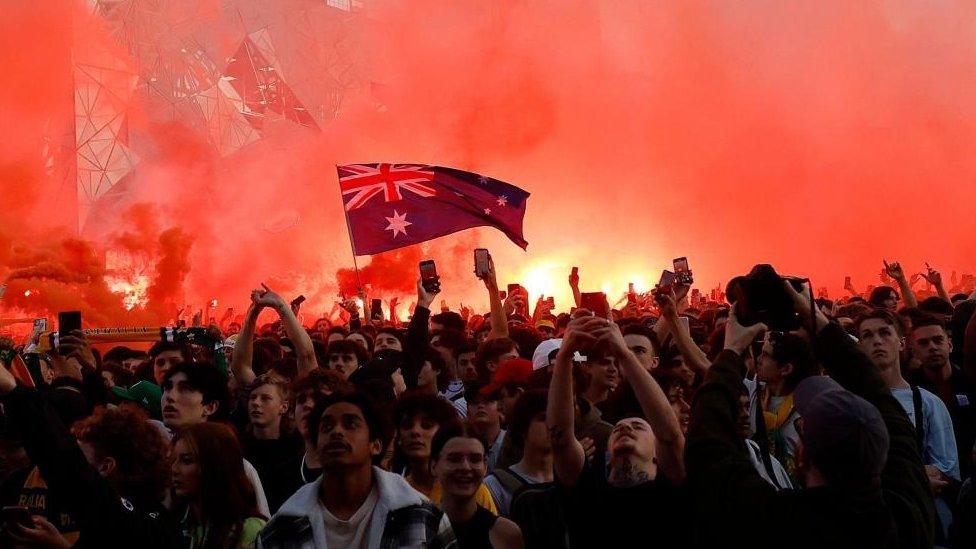
"I feel incredibly proud. These boys have worked their guts out. We're not only passengers, we're actually competitive," Andrea Mosler tells me.
She and her son Orlando Jeffery are draped in the Australian flag outside the stadium before their side's match against Argentina.
And even though Australia's dreams have now been dashed, they go home a proud squad.
This is the first time the tournament has been held in the Middle East - but for many fans this is also an Asian World Cup.
With the Socceroos now out, Japan and South Korea both brace for their next fight as they face Croatia and Brazil - two games that could potentially deliver more jaw-dropping upsets.
Win or lose, those teams have proven themselves worthy opponents against the giants of the game.
"I think it's a reflection of the world," Darren Camilleri, an Australian fan, told me.
"You see the kids in Asia watching and playing football."
He added: "This is no longer the domain of the European and South American teams anymore. This World Cup is showing it. And it's going to get more like that [in the future] and I'm looking forward to it. "
Related topics
- Published5 December 2022
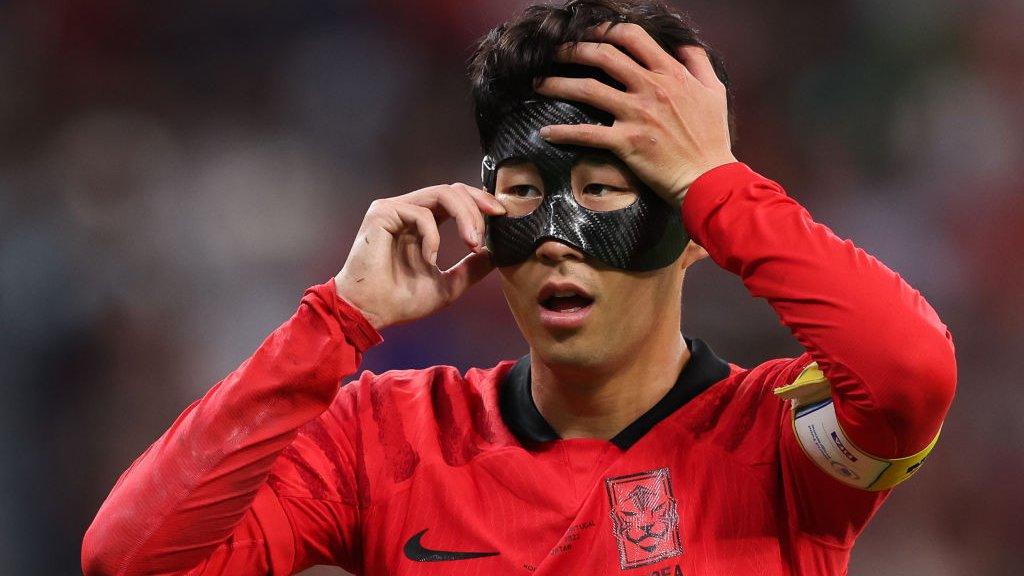
- Published2 December 2022
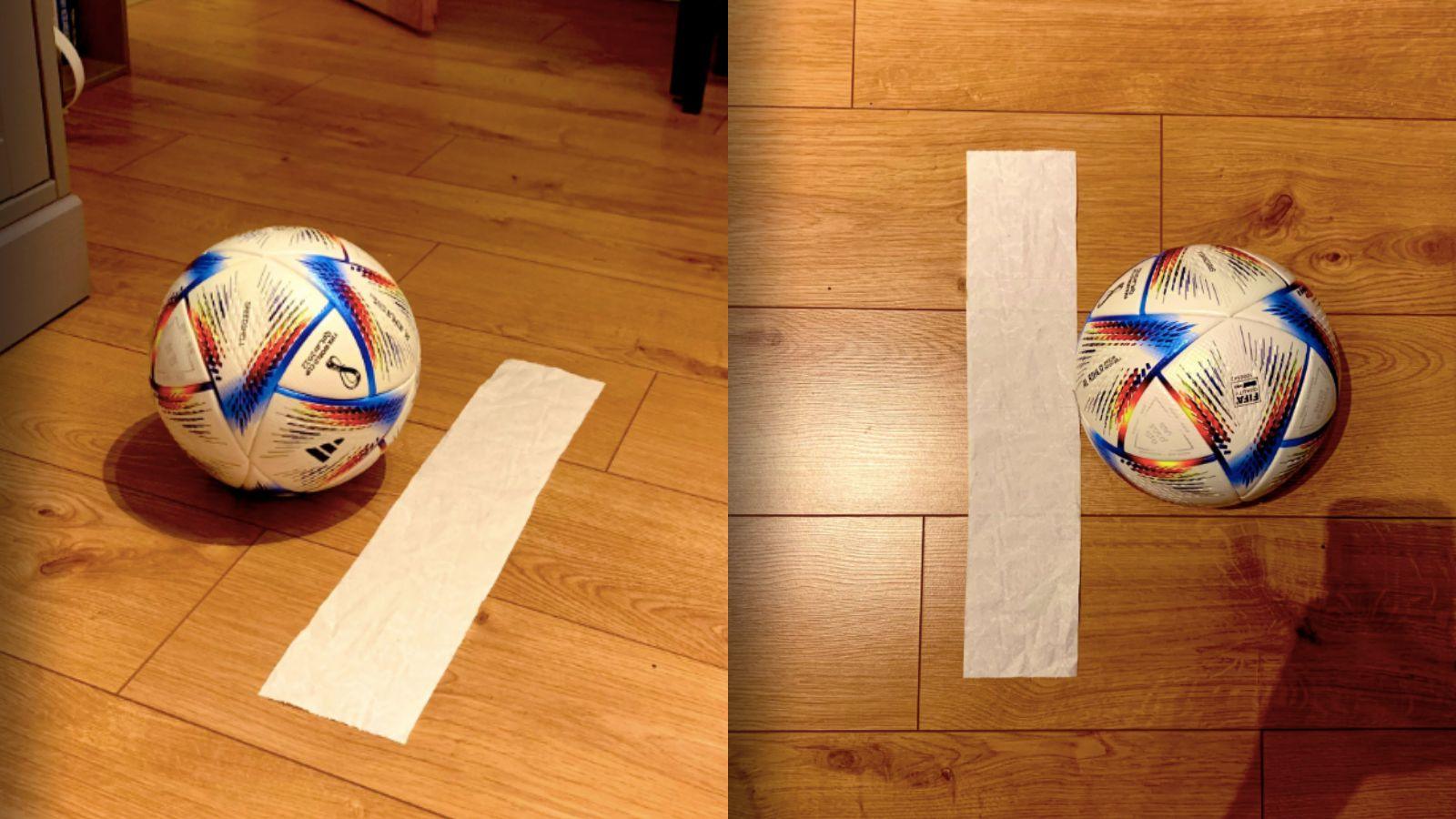
- Published1 December 2022
